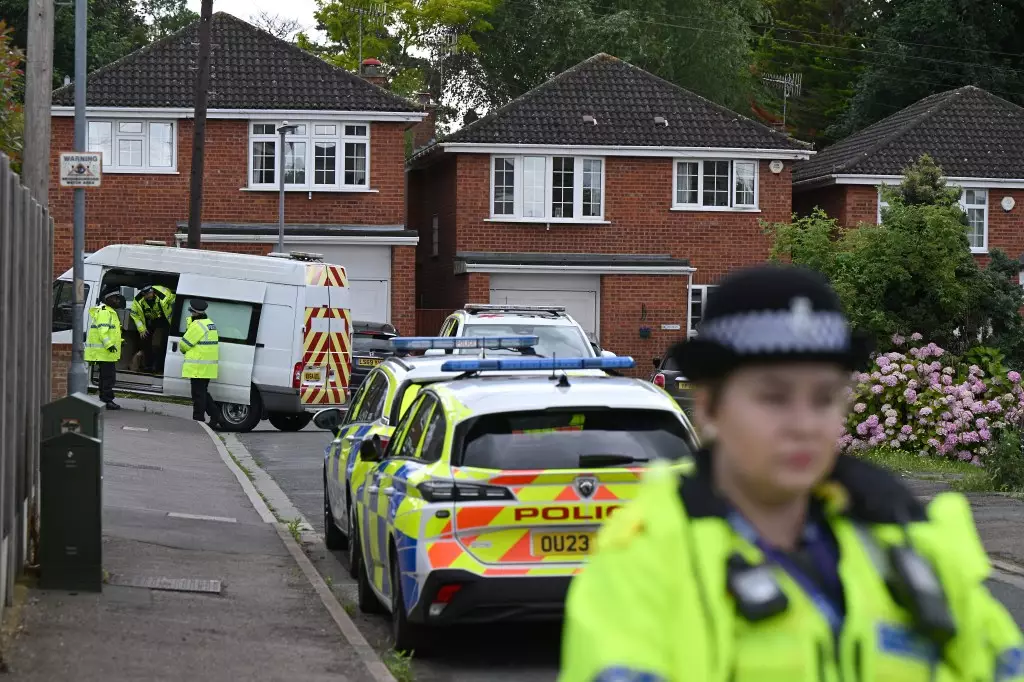On the morning of September 17, the grim details surrounding the murder of the family of John Hunt, a respected BBC horseracing commentator, became public knowledge. Kyle Clifford, a 26-year-old man from Enfield, North London, has been charged with the murder of Hunt’s wife, Carol Hunt, and their two daughters, Louise and Hannah. The alleged violence took place on July 9 in their home in Bushey, Hertfordshire, and marks a dark chapter in a community that now grapples with a profound sense of loss and shock.
The charges against Clifford are particularly heinous, encompassing not only murder but also false imprisonment and possession of offensive weapons. According to court reports, it has been revealed that the women suffered a brutal crossbow attack, leading to their untimely deaths, with Carol Hunt sustaining fatal knife injuries. This tragic event not only deprives John Hunt of his beloved family but also sends ripples of horror through both his personal circle and the broader public who revered him through his work.
Prior to Clifford’s arrest, local police faced the daunting task of locating the suspect, who was initially believed to have fled the crime scene. On July 10, just a day after the horrific events, law enforcement officials confirmed that he had been discovered in North London after an extensive search operation. The police statement acknowledged the cooperation from the public and emphasized that the search for Clifford was urgent due to the nature of the crime—a classic case of a desperate man on the run, potentially posing a threat to others.
In the aftermath of the attack, police dynamics shifted rapidly from locating the assailant to managing community distress. Chief Superintendent Jon Simpson articulated the law enforcement priority by calling for public vigilance—he urged citizens not to approach Clifford if spotted but to contact the authorities immediately. The tactical response from armed police alongside specialist search teams illustrated the seriousness of the situation and the commitment of law enforcement to restore safety and justice.
The Impact on the Community and Media Personnel
The ramifications of this tragic incident extend beyond the direct victims, leaving a community in mourning. John Hunt, being a public figure associated with BBC Radio 5 Live, has fostered a connection with audiences who now share in his heartbreak. The BBC’s response has been compassionate, as demonstrated by the heartfelt note from BBC Radio Controller Heidi Dawson expressing profound sorrow for Hunt and offering support during this unimaginably difficult time.
Fellow commentators and colleagues also took to social media to express their condolences, further highlighting how the tragedy transcends familial loss to touch the hearts of many within the broadcasting world. The emotional sentiments echoed by colleagues and fans alike emphasize the gravity of the lives lost and the PTSD-like ripple effect it creates in the workplace where the joy of commentary is now overshadowed by tragedy.
The Broader Narrative of Violence
This incident serves as a chilling reminder of the realities of domestic violence and its potential to spiral into horrifying acts of aggression. The nature of the attack raises uncomfortable questions about the factors leading to such violence. Was there a history of domestic abuse, either known or unknown? The swiftness with which law enforcement initially categorized it as a targeted incident hints at underlying motives that, however unclear, require sensitive investigation.
As investigations continue and as the legal steps unfold, the community watches with bated breath, hoping for justice while grappling with the despair of such a profound loss. The effects of violence echo not only within the Hunt family but throughout society, reinforcing the need for increased awareness and prevention of domestic abuse.
As the legal proceedings advance, many anticipate a trial that will offer more insights into the events leading up to that tragic night. Until then, the family, friends, and community rally around John Hunt, nurturing his healing, as they collectively mourn the loss of Carol, Louise, and Hannah. This tragedy invites not only sympathy but demands action—action that pursues justice for the victims and addresses the pervasive issue of violence within homes across the country. The hope remains that from such sorrow, lessons will emerge that contribute to a safer, more supportive society.

